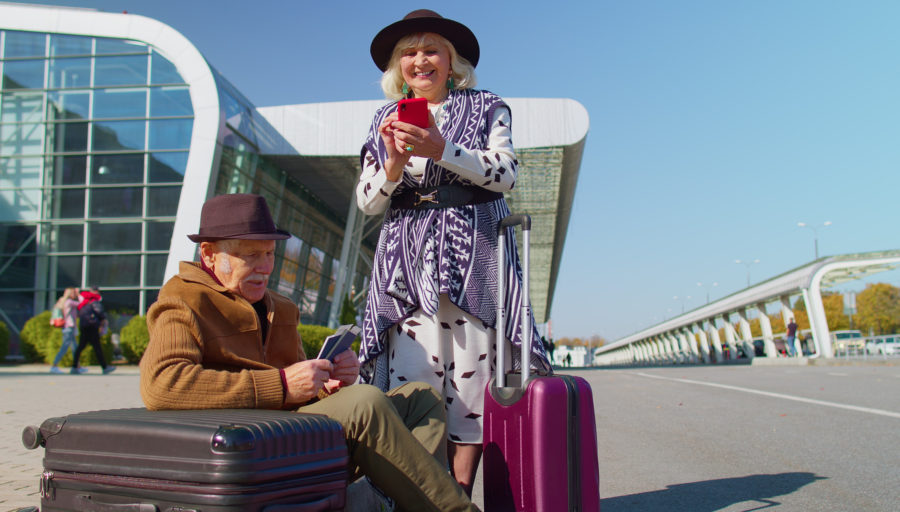For most, summertime elicits visions of sunny beaches, road trips, or family reunions. For the dementia caregiver, however, the summer vacation can be fraught with conflicting feelings and emotions as well as complex logistics. That’s because taking a loved one on vacation can mean even more work for the caregiver, but going on vacation without them can lead to enormous feelings of guilt.
On top of that, traveling with someone who has dementia can exacerbate dementia symptoms. Your loved one could become more agitated when they’re outside of the environment that makes them feel safe and secure.
Airplane Travel When Vacationing with Dementia
Airplane travel can be problematic for those with dementia. Wandering can be dangerous at an airport. A caregiver can turn their back and their loved one is gone. In addition, caregivers sometimes report that flying makes their loved ones more confused. Scientists have theorized that the reduced oxygen and low humidity of controlled airplane cabin environments may further impact cognition. Some have called for research into the prevalence of and factors influencing increased confusion.
Traveling with Early-Stage Dementia
Traveling with those who have early-stage dementia may be more practical than with those who have middle stage dementia. An option like a dementia cruise ensures that there are staff members trained in dementia care and is likely to be less stressful for the caregiver. For other trips, bringing a professional dementia caregiver along can help create a smoother experience. Nevertheless, it’s important to have a backup plan. If the person with dementia isn’t able to cope with the new environment, it’s important to cut the vacation short and come home early.
Caregivers Traveling on Their Own
Dementia caregivers who want a getaway should consider vacationing alone or with a friend. It’s understandable that caregivers may be ambivalent. They may feel stuck in the caregiver role but feel that a vacation means they’re abandoning their loved one. A solo vacation can also reinforce the reality that their partner is declining and trigger feelings of loss and grief.
Nevertheless, it’s important to give yourself permission to take a vacation without your loved one. The first step is to figure out the logistics, such as hiring respite caregivers, arranging for family members to stay, or placing your loved one in a care community for a week or two. At the end of the day, though, it’s crucial for the caregiver’s well-being to take a break from caregiving responsibilities and demands. The dementia journey is long, and a vacation allows the caregiver to catch their breath and prioritize their own needs and desires.
If you need dementia caregiver support, please join my dementia support group or schedule your 30-minute consultation.
Connect with Tami
Get information, guidance, and support delivered to your inbox each month.

